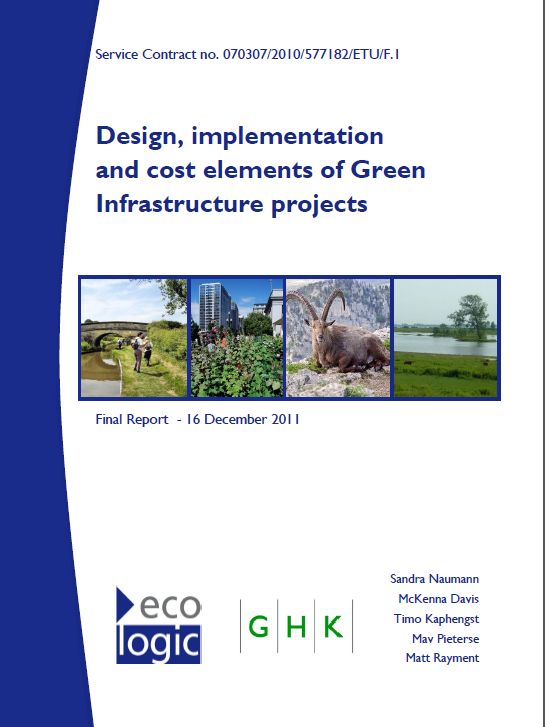Ökosystembasierte Ansätze zur Anpassung an den Klimawandel und zum Klimaschutz im deutschsprachigen Raum
- Publication
- Citation
Naumann, S., M. Davis, B. Goeller, A. Gradmann, L. Mederake, J. Stadler und K. Bockmühl (2015): Ökosystembasierte Ansätze zur Anpassung an den Klimawandel und zum Klimaschutz im deutschsprachigen Raum. BfN-Skripten 395. Bundesamt für Naturschutz.
Climate change and its impacts are already tangible and necessitate swift and concrete adaptation and mitigation actions. This involves a dual approach, which combats the causes of climate change and also supports society in dealing with a changing climate and its effects. Various options are available including, for example, the use of ecosystem-based or nature-based approaches as a supplement or alternative to engineered measures. This comprehensive study synthesizes evidence from ecosystem-based projects from across the German-speaking regions of Europe and presents the goals and activities of such projects, their benefits, and the barriers they face. It also develops recommendations for policy makers. The study is available for download.
Lessons from project experience across the German-speaking regions
Although there is some catching up to do in policy, multiple ecosystem-based projects aiming to mitigate and adapt to climate change can already be identified in practice and in research. While many of these projects do not explicitly classify themselves as being 'ecosystem-based' or 'nature-based', they contribute to climate change mitigation and/or adaptation as well as nature conservation. In an intensive research process and with the support of experts from the fields of research, administration, NGOs and policy, more than 200 initiatives in the German-speaking study area (i.e. Germany, Austria and Switzerland) were identified. This includes projects across many types of ecosystems and landscapes, most frequently in forests, wetlands, grasslands, rivers and agricultural sites but also, for example, in cities, mountain regions, or on the coast.
Although good examples of the multifaceted benefits created by such projects already exist, they are not always known or sufficiently quantified. This can sometimes lead to a failure to systematically take ecosystem-based measures into account in the selection of climate change mitigation and adaptation measures. The recommendations for policy makers developed in the study seek to strengthen the consideration of ecosystem-based approaches to climate change adaptation and mitigation in decision-making processes and increase the level of implementation.
This study has been carried out as a part of a research and development project commissioned by German Federal Agency for Nature Conservation (BfN). In addition to the present report, an online project database, a brochure for the wider public and a short guidance document on nature-based solutions for climate change mitigation and adaptation were developed. These documents and the database are accessible via the BfN thematic website Climate change and biodiversity.


